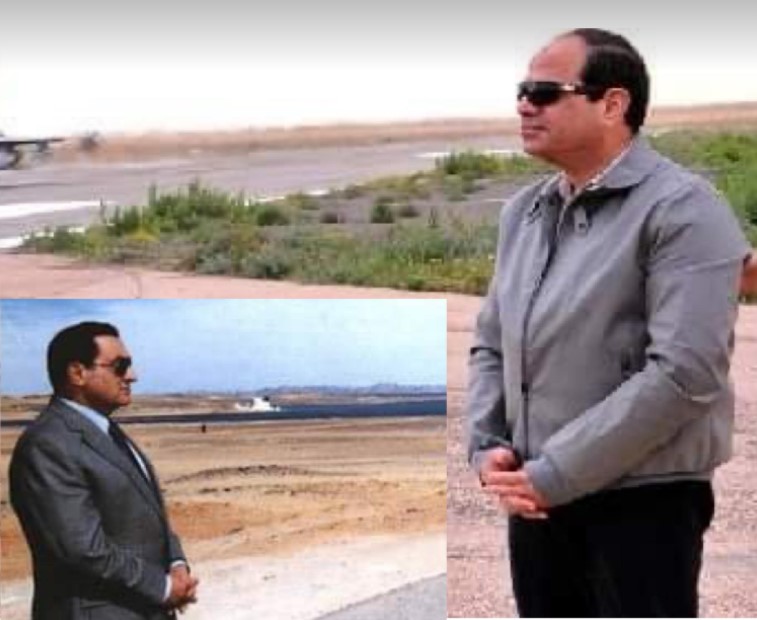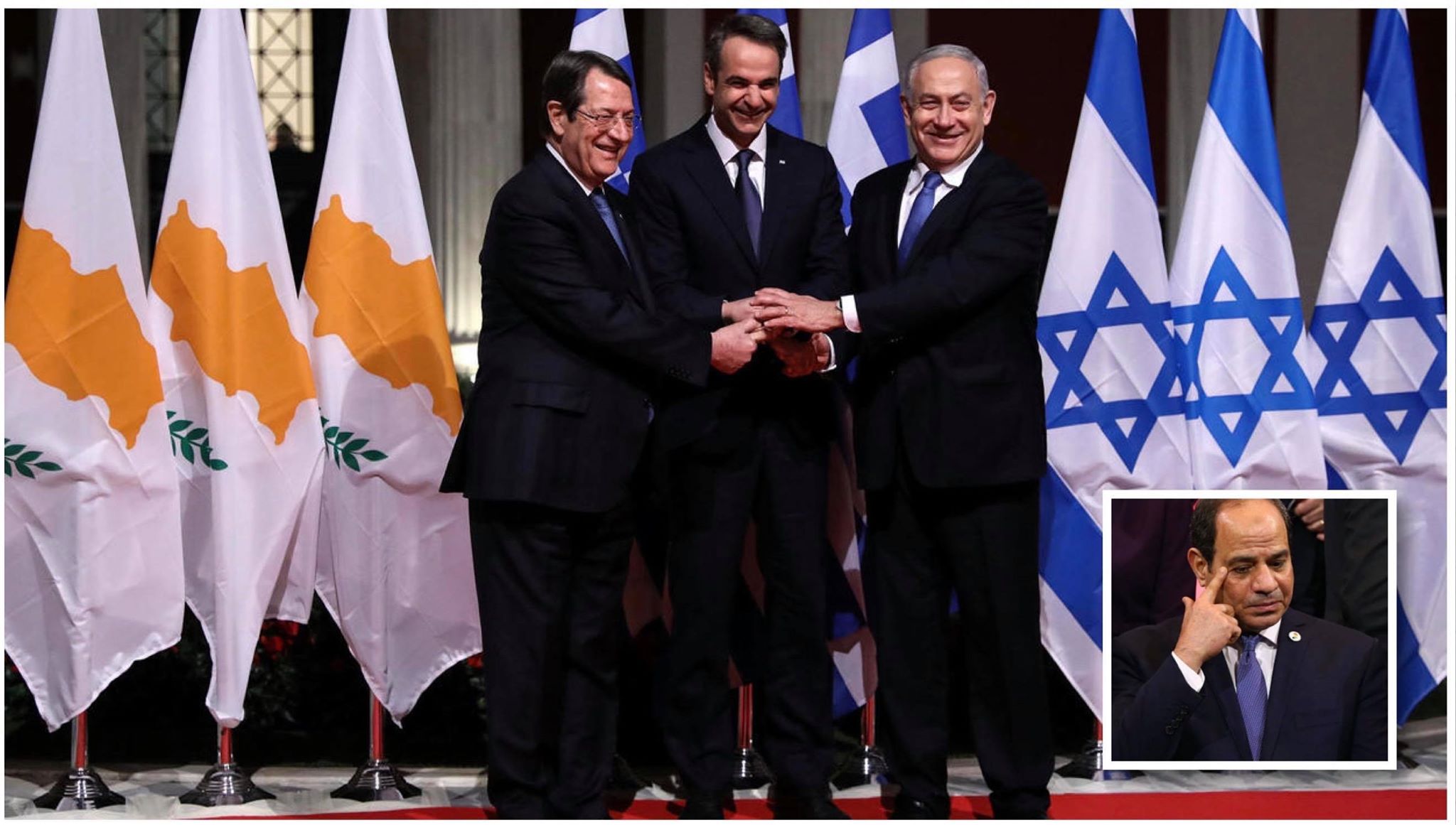Debt is a heavy word on Egyptians. It carries a legacy from the decades of the occupation, about 150 years ago, as the British used excessive borrowing on the part of the ruling Alawite family at the time as a pretext to interfere in the internal affairs of Egypt.
Indeed, the British colonial expansion would not have been stopped by borrowing or not, but it remained a pretext that led to Egypt’s occupation in 1882 and lasted about 74 years.
Now, after nearly a century and a half, debts take its place as a serious dilemma, given the data of Cairo’s borrowing from international institutions in recent years. Perhaps the most prominent Egyptian decision that considers the issue of debt is the Grand Ethiopian Renaissance Dam (GERD) crisis, which threatens the country’s water security. Although there is no occupation in the current known sense in Egypt, the debt has become a significant influence on Egypt’s decisions and its foreign policy. There is surrender from the Egyptian regime after it lost its cards in the negotiations. It is at the creditors’ mercy, who are basically the most prominent investors in the GERD.
Egypt has no choice but to come up with statements and declarations calling for serious negotiations without actual action on the ground, preventing Ethiopia from completing the dam’s construction or stopping its filling.
Escalating debt
Figures say that the debt has escalated over the last ten years at a pace not seen in Egypt over the course of the twentieth century. With the demise of the ousted President Hosni Mubarak’s era, specifically in December 2010, domestic debt reached EGP 962.2 billion ($54 billion), and external debt reached EGP 34.9 billion. That debt represented 84.5 per cent of the gross domestic product. During the Military Council’s rule from February 2011 to the end of June 2012, domestic debt jumped to EGP 1,238 trillion ($69.5 billion) and the external debt to $34.3 billion. The total debt became 86.3 per cent of the GDP.
During the year in which Mohamed Morsi assumed the country’s presidency, the domestic debt rose to EGP 1.527 trillion ($85.7 billion) and the external debt to $43.2 billion, with the volume of debt reaching 98.4 per cent of the GDP. During the interim President Adly Mansour’s era after the military coup against the country’s first civilian president in July 2013, debt rose to 100.7 per cent of GDP. With Abdel Fattah Al-Sisi’s arrival to power in June 2014, debt indicators rose unprecedentedly.
According to International Monetary Fund figures, Egypt’s external debt tripled, reaching more than $125 billion, while the domestic debt reached EGP 4 trillion ($253.6 billion), representing more than 125 per cent of the GDP. The risk does not stop at the number of borrowing, but it extends to increasing the interest on debt that the Egyptian government must pay annually.
Lenders and allies
According to official data, Saudi Arabia and the UAE are the most prominent countries that have lent money to Egypt in recent years. At the same time, they are stabbing Cairo in the back, being one of the most prominent investors in the Renaissance Dam. Even Riyadh and Abu Dhabi did not announce any steps, even moral, to support Cairo in facing Addis Ababa in the face of an existential challenge represented by the waters of the Nile. On the contrary, the two countries competed to provide aid to Ethiopia in light of the escalating crisis between it and Cairo. Faced with these moves, Egypt could not take any steps against the two countries, as they are among the most prominent creditors to Cairo.
Even an Egyptian diplomatic official stated that “Ethiopia is completely reassured that its dispute with Egypt will not escalate because the funds and investments in the Renaissance Dam belong to Cairo’s allies.” The World Bank also has great common interests in Ethiopia in general and the Renaissance Dam in particular. It is one of the most important lenders to Egypt, which means that Cairo’s decision against the dam faces severe considerations. The issue is not limited to Saudi Arabia and the UAE only, as there are Chinese and Italian investments in the dam, which are among the countries that Egypt borrows from, in exchange for weapons and military equipment, which makes a decisive decision for Egypt against the dam unlikely.
Debt crisis
Egyptian economist Ashraf Ayoub says that the Renaissance Dam crisis was caused by Egyptian debt, pointing out that the situation now does not depend on Egypt’s negotiations with Ethiopia. Cairo must negotiate with the dam’s financiers, who are mainly among the major providers of loans to Egypt. “Egypt’s position with these lenders pushes it to accept their point of view and submit to their investments in the Ethiopian dam,” says Ayoub. Ayoub explains that such countries are interested in preserving their investments, and even escalating them, which makes them take the side of Ethiopia against the weak regime.”
The former head of the Egyptian Social Democratic Party, Muhammad Aboul Ghar, agrees with him when he says that the current international reality cannot use debt as a pretext for the military occupation in its old sense. Still, it has a significant impact on external interference and the decisions of borrowing countries. Aboul Ghar gave an example in Greece when he was hit by financial hardship due to the exaggerated loans, which ended in him almost declaring his bankruptcy and placing the Greek economy under the management of foreign experts led by Germany, the largest creditor.
The same vision is adopted by former parliamentarian Ezz El-Din El-Koumi, who says that creditors have become the decision-makers in Egypt, and Cairo has no right to object to their decisions. Koumi cites Egypt’s example of not moving militarily against the dam due to the investments of the lending countries to Cairo in the dam. Egypt’s decision on the dam takes primary economic considerations before they are political. The danger, according to Al-Koumi, lies in the ambiguity surrounding the creditors’ conditions and raising them to political decisions if Egypt is not able to repay the debts.





Recent Comments